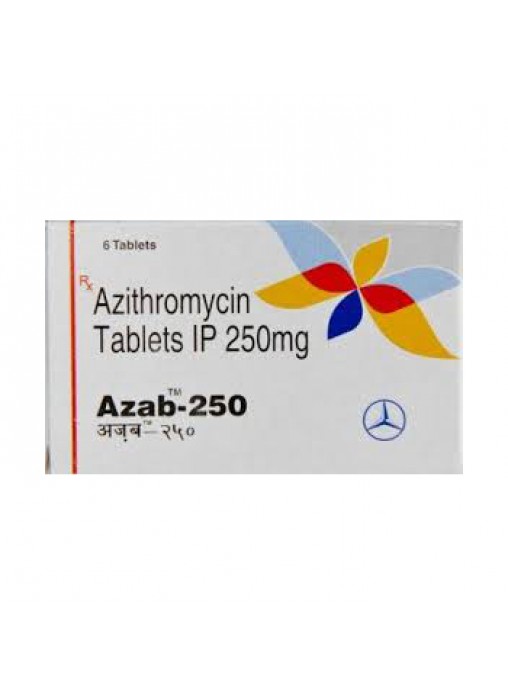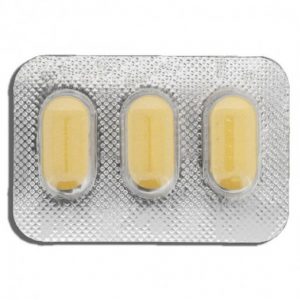Description
General information about Azab 250 in USA
Azithromycin is used to treat a wide variety of bacterial infections. It is a macrolide antibiotic. It works by preventing the growth of bacteria. This medication will not work against viral infections (such as colds, flu). Unnecessary use or overuse of an antibiotic can lead to a decrease in its effectiveness.
Characteristics Azab 250 in USA
Read Patient Information Leaflet if available from your pharmacist before you take azithromycin and each time you get a refill. If you have any questions, consult your doctor or pharmacist. Take this medication by mouth as directed by your doctor, usually once daily with or without food. You can take this medicine with food if you have stomach pain. Dosage is based on your medical condition and response to treatment. Antibiotics work best when the amount of medicine in your body is kept constant. Therefore, take this medication at the same time each day. Keep taking this medicine until the full prescribed amount is finished, even if the symptoms disappear after a few days.
Stopping the medicine too soon can allow bacteria to continue to grow, which can cause the infection to come back. Antacids containing aluminum or magnesium may decrease azithromycin absorption if taken concurrently. If you are taking an antacid containing aluminum or magnesium, wait at least 2 hours before or after taking azithromycin. Tell your doctor if your condition persists or worsens.
Side effects in USA:
Stomach upset, diarrhea/loose stools, nausea, vomiting, or abdominal pain may occur. If any of these effects persist or worsen, tell your doctor or pharmacist. Remember that your doctor has prescribed this medicine because he has decided that the benefit to you outweighs the risk of side effects. Many people using this medication do not have serious side effects. Tell your doctor right away if any of these unlikely but serious side effects occur: hearing changes (such as decreased hearing, deafness) eye problems (such as droopy eyelids, blurred vision), difficulty speaking/swallowing, muscle weakness, signs of liver problems (such as unusual tiredness, persistent nausea/vomiting, severe abdominal or stomach pain, yellow eyes/skin, dark urine). Get medical help right away if any of these rare but serious side effects occur: fast/irregular heartbeat, severe dizziness, fainting. This medication may rarely cause severe bowel disease (diarrhea associated with Clostridium difficile) due to resistant bacteria.
This condition may occur during treatment or weeks to months after treatment has stopped. Do not use antidiarrheal products or narcotic pain medications if you have any of the following symptoms, as these products may make them worse. Tell your doctor right away if you develop: persistent diarrhea, abdominal or stomach pain or cramps, blood/mucus in your stool. Using this medication for prolonged or repeated periods of time may lead to oral thrush or a new yeast infection.Contact your doctor if you notice white patches in your mouth, a change in vaginal discharge, or other new symptoms. A very serious allergic reaction to this drug is rare. However, seek medical help immediately if you notice symptoms of a serious allergic reaction, including: rash, itching/swelling (especially of the face/tongue/throat), severe dizziness, difficulty breathing. An allergic reaction to this medicine may come back even if you stop the medicine. If you have an allergic reaction, continue to watch for any of the above symptoms for several days after your last dose. This is not a complete list of possible side effects. If you notice other effects not listed above, contact your doctor or pharmacist.






Reviews
There are no reviews yet.